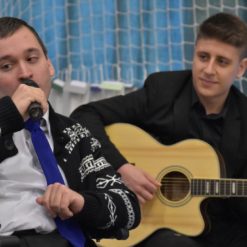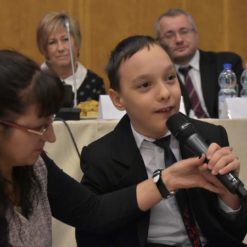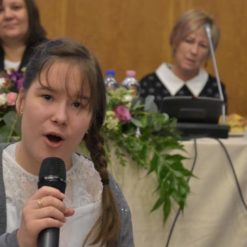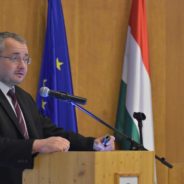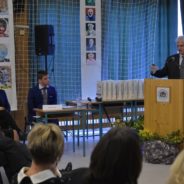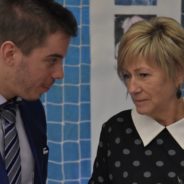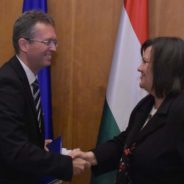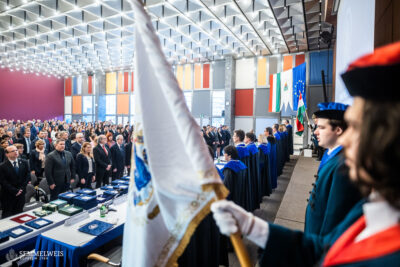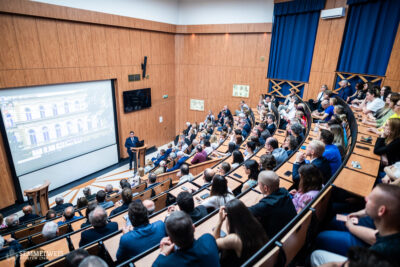“Science without borders – double speciality” was the title of the two-day conference of András Pető Faculty, held in the framework of Hungarian Science Days. As part of a series of commemorative programmes on the 125th birth anniversary of the Faculty’s namesake, on the first day scientific lectures, and on the second day, scientific student presentations were held.
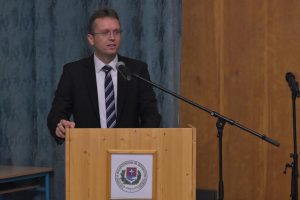 In his opening speech at Pető Day, Dr. Balázs Hankó, Vice-Rector for Strategy and Development, said that Dr. András Pető spent more than half of his life developing his method to institutionalize complex development and to create the conditions for professional training. He added that Pető went against the usual professional protocols: he believed in man’s ability to act, brain capacity, activity, and the freedom of mind. Semmelweis University considers it a task to preserve the basic principles of the Pető method, as well as integrating the results of current medical and pedagogical sciences and research into everyday practice, and complying with today’s needs of professional training and social expectations, said the Vice-Rector. In 2018, we celebrate two important anniversaries: Ignác Semmelweis was born 200 years ago, and András Pető was born 125 years ago, along whose spirits the András Pető Faculty, as part of Semmelweis University, can continue the progressive path left by the namesakes of the university and the faculty. Dr. Balázs Hankó added that in the year of the 250th anniversary of the university’s foundation, in 2019, further development of the András Pető Faculty can begin. After his welcome speech, Dr. Balázs Hankó ceremoniously presented Dr. Andrea Zsebe her dean’s title for five years.
In his opening speech at Pető Day, Dr. Balázs Hankó, Vice-Rector for Strategy and Development, said that Dr. András Pető spent more than half of his life developing his method to institutionalize complex development and to create the conditions for professional training. He added that Pető went against the usual professional protocols: he believed in man’s ability to act, brain capacity, activity, and the freedom of mind. Semmelweis University considers it a task to preserve the basic principles of the Pető method, as well as integrating the results of current medical and pedagogical sciences and research into everyday practice, and complying with today’s needs of professional training and social expectations, said the Vice-Rector. In 2018, we celebrate two important anniversaries: Ignác Semmelweis was born 200 years ago, and András Pető was born 125 years ago, along whose spirits the András Pető Faculty, as part of Semmelweis University, can continue the progressive path left by the namesakes of the university and the faculty. Dr. Balázs Hankó added that in the year of the 250th anniversary of the university’s foundation, in 2019, further development of the András Pető Faculty can begin. After his welcome speech, Dr. Balázs Hankó ceremoniously presented Dr. Andrea Zsebe her dean’s title for five years.
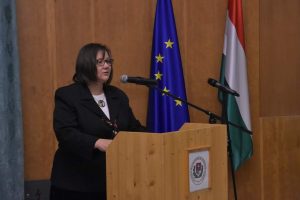 Pető Day has been part of Hungarian Science Days of the Hungarian Academy of Sciences for nearly one and a half decades, said Dr. Andrea Zsebe. By joining Semmelweis University, new resources have opened for us, with the help of which we have launched new research projects. By joining the doctoral programme of the university, we have been able to announce an independent topic, we have organized a joint project on Researchers’ Night, and we have been able to launch scientific and professional innovations within our faculty. She highlighted the creation of a digitalized database of conductive pedagogy: the electronic database of 118,000 pages contains more than six hundred of the most important works of conductive education and related disciplines. The literature included in the database can be read online by the enrolled readers. Dr. Andrea Zsebe said that the method and device system of conductive pedagogy have been helping to restore the independent, active and complete lifestyle of children and adults struggling with movement problems for more than 70 years. She mentioned that Pető Day is about people with “double speciality” who have achieved good results in disabled sports, in music and fine art, among other things.
Pető Day has been part of Hungarian Science Days of the Hungarian Academy of Sciences for nearly one and a half decades, said Dr. Andrea Zsebe. By joining Semmelweis University, new resources have opened for us, with the help of which we have launched new research projects. By joining the doctoral programme of the university, we have been able to announce an independent topic, we have organized a joint project on Researchers’ Night, and we have been able to launch scientific and professional innovations within our faculty. She highlighted the creation of a digitalized database of conductive pedagogy: the electronic database of 118,000 pages contains more than six hundred of the most important works of conductive education and related disciplines. The literature included in the database can be read online by the enrolled readers. Dr. Andrea Zsebe said that the method and device system of conductive pedagogy have been helping to restore the independent, active and complete lifestyle of children and adults struggling with movement problems for more than 70 years. She mentioned that Pető Day is about people with “double speciality” who have achieved good results in disabled sports, in music and fine art, among other things.
Afterwards, Dr. Harry Knopke, Retired Rector of the Aquinas College, Vice-President of the Conductive Learning Centre’s Board of Directors, presented the history and activity of the North American conductive centre, founded in 1999 in collaboration with Pető Institute. He recalled that the idea of establishing the institution was given by a family who used to go to Budapest for conductive development with their children. He explained that in the last 20 years, they have been able to help more than 700 families in the United States, and 110 conductors from Budapest have visited their institution.
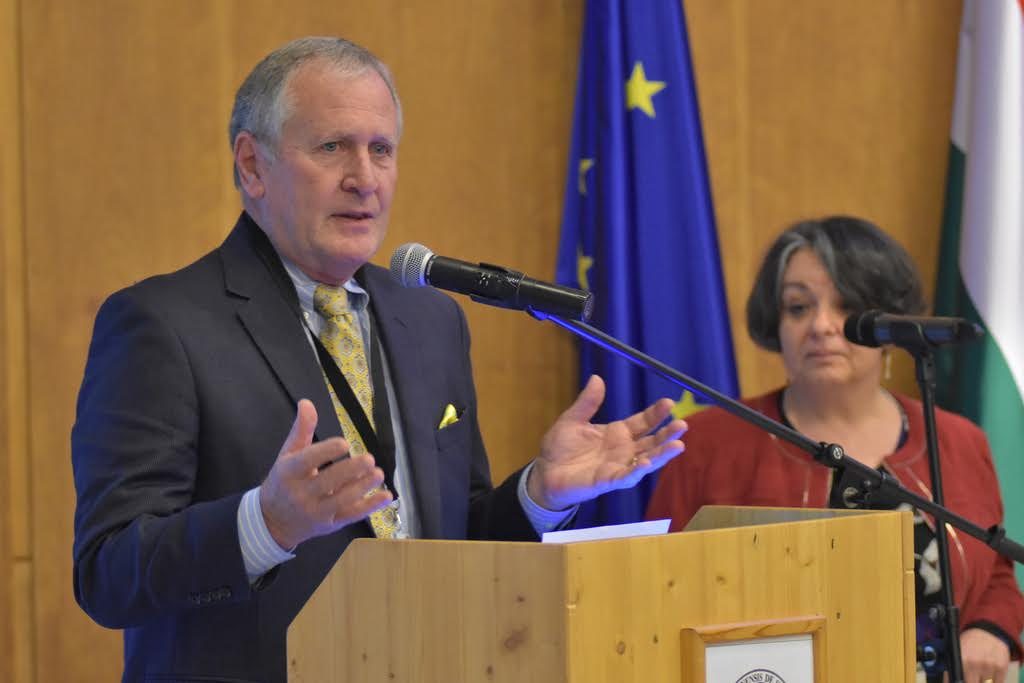 The conference continued with the performances of the faculty’s former and current students. The topics of the professional lectures included, among others, the influential factors of conductive pedagogy and the conductors’ competencies, talent support and sports. On the second day of the programme series, lectures were held by the faculty’s students of the Students’ Scientific Association, and the digitalized database of conductive pedagogy was also presented.
The conference continued with the performances of the faculty’s former and current students. The topics of the professional lectures included, among others, the influential factors of conductive pedagogy and the conductors’ competencies, talent support and sports. On the second day of the programme series, lectures were held by the faculty’s students of the Students’ Scientific Association, and the digitalized database of conductive pedagogy was also presented.
Eszter Keresztes
Photo: Balázs Tatai – Semmelweis University
Translation: Diána Módos
